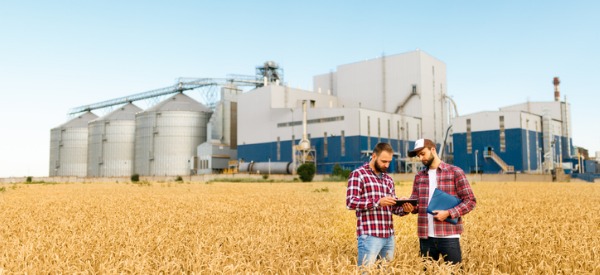What is a Grain Elevator Worker?
A grain elevator worker helps manage the flow of grain through large storage facilities known as grain elevators. These facilities are essential in the agricultural supply chain, serving as key points where grain is collected from farms, stored, and later distributed to buyers such as food manufacturers or export terminals. Grain elevator workers typically operate in rural areas or near transportation hubs like railways or ports.
This role is important because it helps ensure that harvested crops are properly stored and kept in good condition before being shipped out. Grain elevator workers usually work in fast-paced, seasonal environments, especially during harvest time.
What does a Grain Elevator Worker do?

Duties and Responsibilities
Grain elevator workers perform a variety of tasks that keep grain storage and handling operations running smoothly. Their responsibilities often include:
- Loading and Unloading Grain: They operate machinery to move grain from trucks, railcars, or containers into storage bins or silos, and load it out again for transport.
- Monitoring Grain Quality: They check for issues like moisture, mold, or pests and may take samples to ensure the grain meets quality standards during storage.
- Maintaining Equipment: They help clean, inspect, and service machinery such as conveyors, elevators, and dryers to keep everything running safely and efficiently.
- Documenting Shipments: They record details like grain type, weight, and storage location for inventory control and regulatory compliance.
- Following Safety Procedures: They work carefully to avoid accidents, especially when handling combustible dust or operating heavy equipment.
Types of Grain Elevator Workers
Here are some common types of grain elevator workers, each with slightly different responsibilities depending on their focus and the size of the facility:
- Grain Handler: Focuses on the physical movement of grain, including loading, unloading, and transferring between storage areas.
- Scale Operator: Manages the weighing of incoming and outgoing grain shipments and ensures accurate documentation.
- Grain Sampler/Inspector: Takes and analyzes grain samples to check for quality, moisture levels, pests, or contamination.
- Maintenance Technician: Specializes in maintaining and repairing the mechanical systems used in the elevator, such as conveyors, dryers, and augers.
- Control Room Operator: Oversees operations from a central control system, monitoring equipment performance and grain flow throughout the facility.
What is the workplace of a Grain Elevator Worker like?
The workplace of a grain elevator worker is typically a large, industrial facility where grain is stored, handled, and transported. These environments are often noisy and dusty due to the constant movement of grain and operation of heavy machinery like conveyors, augers, and dryers. Workers spend time both indoors and outdoors, depending on their specific role and the facility’s layout.
Safety is a key concern in this setting. Grain elevators have strict protocols to protect workers from hazards such as grain dust explosions, falls from height, and equipment accidents. Workers may need to wear personal protective equipment like respirators, hard hats, and hearing protection. Physical activity is a big part of the job, especially for those involved in loading, unloading, and maintenance tasks.
Grain elevator workers often work in shifts, including evenings, weekends, and overtime during busy seasons like harvest. The pace can be fast, especially when coordinating incoming trucks or railcars full of grain. Good communication and teamwork are important, as many tasks are coordinated across different areas of the facility.
Frequently Asked Questions
Farming-Related Careers and Degrees
Careers
- Alligator Farmer
- Agricultural Engineer
- Agricultural Worker
- Agronomist
- Aquaculturist
- Artisanal Dairy Farmer
- Beekeeper
- Certified Crop Advisor
- Chicken Sexer
- Commercial Dairy Farmer
- Crop Farmer
- Dairy Farmer
- Dairy Farm Worker
- Farm Equipment Mechanic
- Dairy Scientist
- Farmer
- Family Dairy Farmer
- Farm Manager
- Grain Elevator Worker
- Livestock Farmer
- Livestock Feed Sales Representative
- Organic Dairy Farmer
- Organic Farmer
- Poultry Farmer
- Poultry Scientist
- Rancher
- Robotic Dairy Farmer
- Vermiculturist
Degrees
- Agribusiness
- Agricultural Mechanics
- Agriculture
- Agronomy
- Animal Sciences
- Aquaculture
- Crop Production
- Dairy Science
- Equine Science
- Poultry Science
- Soil Science